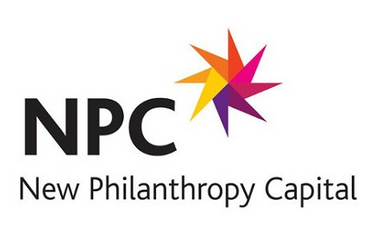Foundations have been urged to take risks with their grantmaking activities in order to remain relevant.
Speakers on a panel at NPC Ignites 2022 conference last week were asked: “What does philanthropy fit for the future look like?”
Sufina Ahmad, director of the John Ellerman Foundation, said: “We have to realise that within philanthropy our past is our present and future.”
She said it was important to recognise the past as it allows foundations to examine what has been “ingrained” into ways of working and “face up to the fact that much of what has made philanthropy possible, such as economic and political systems that allow unfettered wealth creation and growth, is actually at the root of the work philanthropy is now seeking to address and improve”.
Patricia Hamzahee, co-founder of GiveBLACK, said there needs to be a lot of examination about the sources of wealth in the sector and therefore, “how that wealth is used and deployed”.
“I think there's a lot of time and effort that should be spent on that examination, and I think it will get you to a good place to understand what more can be done to redress the power imbalances,” she said.
Risk and ambition
Rommel Moseley, executive director at Croda Foundation, said at the foundation “risk appetite is high for projects”.
He said the board recognises that some projects may fail, but they're willing to support them.
Moseley said “this is unusual from my experience in some grant giving” and is something that should see uptake across the sector.
Ahmad agreed taking risks was key: “I don't think it's fine to be a philanthropist and not be engaged with risk and ambition. I think the purpose of philanthropy is to support the delivery of ambitious change, and if not now, when?”.
She said “we are in crisis” and “the fact that so little has shifted in terms of economic and racial disparities” is greatly concerning.
“If you're not being ambitious, and if you're not engaged with risk right now then you have to query your right to exist as a philanthropic entity, individual, organisation, institution.”
Systems changes
Ahmad questioned: “Are we making surface level changes rather than deep changes within systems?”
She said: “I've definitely had conversations recently that made me wonder about whether the systems work we support as funders does need to be more ambitious”.
“In the future philanthropy has to continue backing systems thinking and systems based work, but it has to back the kind of work that is pluralistic, inclusive, and ambitious. And that is going to mean that we have to ensure that those that are most negatively impacted by various systems are empowered and enabled to design and pursue alternative ideals.”
Ahmad said there's never going to be one best way of funding the kind of work that she was describing, “but we're going to have to embrace a tapestry of approaches”.
“There may be a time when philanthropy is not needed, but in the meantime, my hope is that philanthropy both now and in the future operates with ambition, humility, and a complete and ongoing interrogation of why we exist at all.”
Ahmad said foundations should think about themselves as “part of a system that is seeking change”, and added the sector “could be much more honest and transparent” about power dynamics “rather than ignoring them like the elephant in the room”.
Hamzahee suggested some ‘asks’ of organisations are not feasible, so though they could demonstrate a lot of amazing work, but “they cannot necessarily tick all the boxes that the grant makers might want them to”.
She said her solution was that there should be “much more co-creation”.
Hamzahee noted many of these systems and processes “have been designed by the people with the power and not involving in any stage at all or very little, the people who are going to have to work with them”.
While it might be more time consuming, she said, “more co-creation has to happen because then you will create systems that are very fair and beneficial to everyone”.
Related Articles












